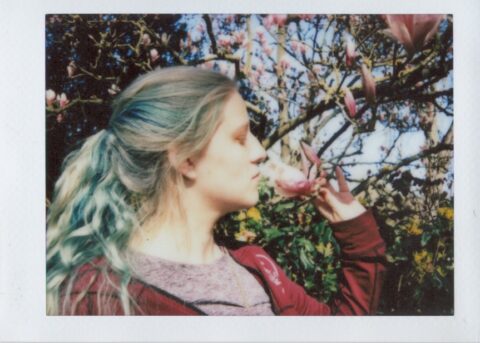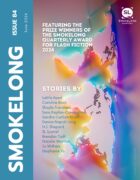How did you decide to combine humor and tension to build anxiety?
I think when we talk about mental health, we often feel the need to be really serious. However, when you come out the other side of a mental health crisis, I think it’s crucial to be able to exercise a little gallows humor. My grandma used to say, “It’s no laughing matter, but no matter if you laugh,” and that’s a principle I try to employ in my work. To cope with the really dark stuff, we need to be able to take a breath, and if that breath comes at the end of a good chuckle, all the better.
Usually a symbol of wisdom and intelligence, why is the octopus a source of anxiety?
When I was drafting “Octopus Heart,” I wasn’t thinking so much about symbolism as I was about the visceral feeling of the heart being squeezed. For me, the octopus made a lot of sense in this respect because of its ability to camouflage itself, to squeeze into small spaces, and above all to wrap and squeeze something eight times over. I’d like to note that I think octopi are marvelous and beautiful creatures and are certainly deserving of the symbology of wisdom and intelligence! I’d just rather not have one living in my chest, uninvited.
An octopus can mean many things (an unwanted pregnancy, claustrophobia, oppressive government) if any? Which did you have in mind?
For me, the octopus relates to the feeling of mental illness as a separate entity that inhabits us. When I’ve been in mental health crises, it all feels so outside of my control, as if this unexplainable other has taken over, and I no longer have autonomy over my own body. So I think of the octopus as being related to anxiety, and to mental health crises more generally, in this piece.
Can the octopus be seen as an alien, an outcast (as in Hawaiian mythology)?
Certainly. The octopus in the story is a very unwelcome visitor, but I think as the writer I feel a little sorry for the octopus, who is in some ways just as trapped as our protagonist. The octopus is “alien” to her body, and to wintry Michigan. H.P. Lovecraft was obsessed both with space and with deep sea creatures, and my husband has a horrific, Bloodborne-style Cthulhu tattoo that looks quite similar to an octopus, except with dozens of yolky eyes and several sets of spiked teeth. I think this association between deep sea and alien has made its way into my subconscious after years of sleeping next to those creeping tentacles.
Of what significance is the empty tank at Mote Marine?
I love to have a note of fabulism in my stories if I can, something that’s difficult to do in a flash piece, where I’ve got so little real estate to work with. I wanted to give my protagonist, and the readers, a little real-world evidence that this octopus isn’t necessarily just a metaphor. Of course, everyone will have different readings, and I don’t want to dictate the absolute truth of the story beyond what’s already on the page. The empty tank at Mote Marine is, for me, meant to nod to the possibility of the octopus being real, perhaps even this octopus is inhabiting the protagonist’s chest cavity. After all, how did it get there in the first place? The empty tank also compounds our protagonist’s feeling of helplessness, and I think she takes the empty tank as symbolic of her inability to cope and to understand what’s happening to her.



 The core workshop of SmokeLong Fitness is all in writing, so you can take part from anywhere at anytime. We are excited about creating a supportive, consistent and structured environment for flash writers to work on their craft in a community. We are thrilled and proud to say that our workshop participants have won, placed, or been listed in every major flash competition. Community works.
The core workshop of SmokeLong Fitness is all in writing, so you can take part from anywhere at anytime. We are excited about creating a supportive, consistent and structured environment for flash writers to work on their craft in a community. We are thrilled and proud to say that our workshop participants have won, placed, or been listed in every major flash competition. Community works.